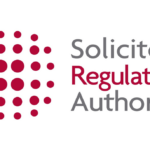Tax evasion is a growing global concern, with significant implications for businesses and their leaders. Under the UK’s Criminal Finances Act 2017, organisations can face severe penalties for failing to prevent the facilitation of tax evasion by employees, suppliers, or third parties.
Ensuring compliance is not just about avoiding fines—it’s about protecting your organisation’s reputation and building trust with stakeholders.
Join us for a comprehensive webinar exploring the key compliance challenges and solutions for preventing tax evasion in 2025. Businesses must implement “reasonable procedures” to ensure they are not facilitating tax evasion.
We’ll dive deep into practical strategies for establishing procedures that align with the Criminal Finances Act 2017, addressing potential risks within your organisation and its supply chain. This webinar will take you through risk mitigation strategies, ensuring staff can identify red flags and managing compliance with international tax standards like DAC6.
This webinar will cover:
– Understanding tax evasion risks: Key differences between tax evasion, avoidance, and mitigation and why that matters for compliance
– The Criminal Finances Act: Compliance essentials and the penalties for failing to prevent the criminal facilitation of tax evasion
– Spotting red flags: Identifying signs of facilitation of tax evasion and what to do when concerns arise
– Offshore jurisdictions and high risk countries: Addressing the challenges of global tax compliance and high risk jurisdictions
– Training and prevention tools: How interactive learning and tailored guidance can reduce risks.















